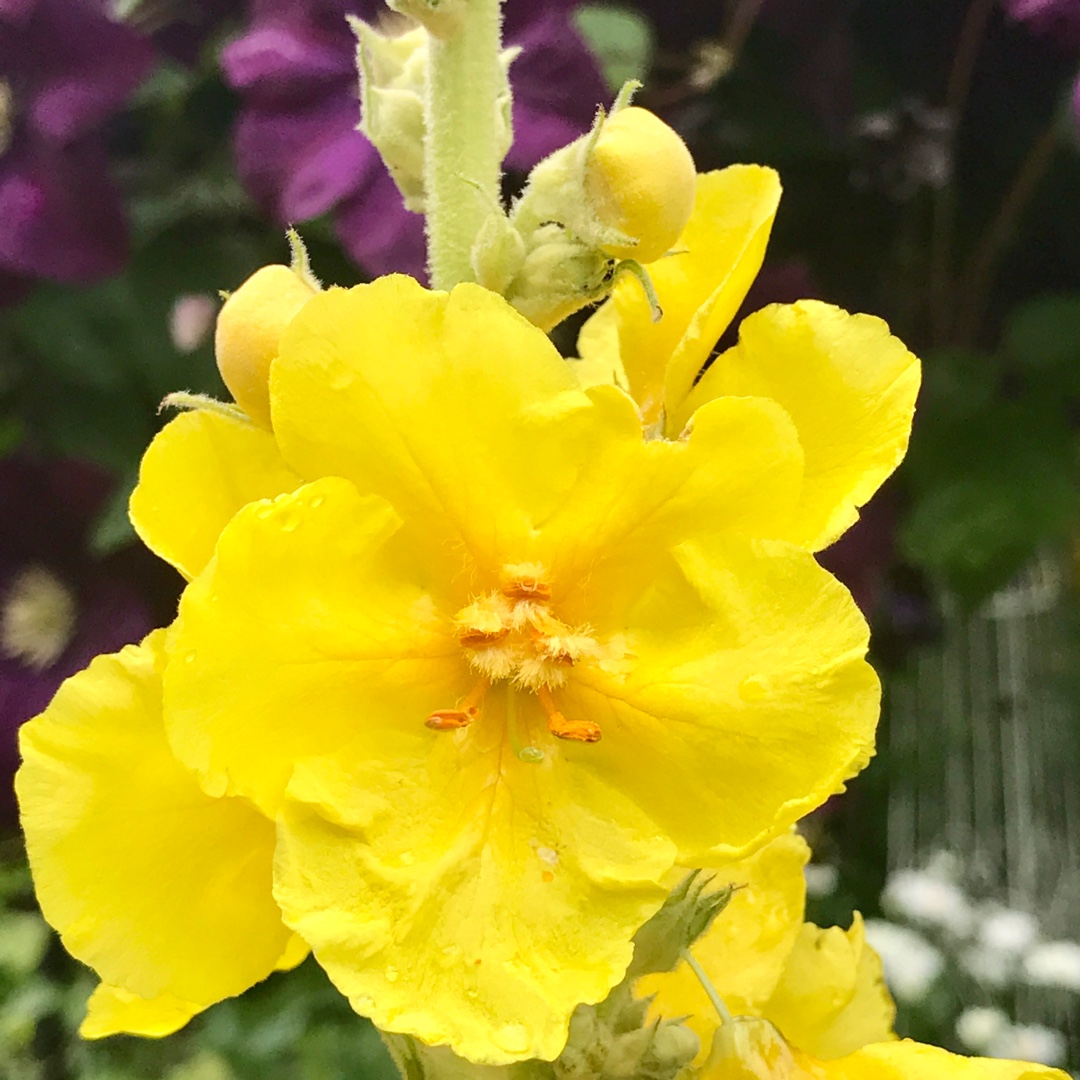
Verbascum x hybrida 'Banana Custard'
Mullein 'Banana Custard'
Verbascum - or mullein - are perennial or biennial, tall flowering plants that have a basal rosette of foliage from which, in Summer, arises a flower spike of saucer-shaped flowers that are attractive to bees.'Banana Custard' is a biennial or short-lived perennial. Forms a rosette of large grey-green leaves, and in the second year spikes of yellow flowers appear
Contributed by @pauline33
-
Full sun
-
Very little water
-
Full Frost Hardy: 5F (-15°C)
-
Free draining
Common name
Mullein 'Banana Custard'
Latin name
Verbascum x hybrida 'Banana Custard'
type
Biennial
family
Scrophulariaceae
ph
7.5 - 9.0 Acid - Neutral
Plant & bloom calendar
-
Best time to plant
-
When the plant will bloom
full grown dimensions
 0.60 M
1.80 M
0.60 M
1.80 M
Verbascum x hybrida 'Banana Custard'
Verbascum - or mullein - are perennial or biennial, tall flowering plants that have a basal rosette of foliage from which, in Summer, arises a flower spike of saucer-shaped flowers that are attractive to bees.'Banana Custard' is a biennial or short-lived perennial. Forms a rosette of large grey-green leaves, and in the second year spikes of yellow flowers appear
Flowering Season
From Early Summer TO Late Summer
Flowers appear in succession from early Summer to late Summer
Planting
From Mid Spring TO Late Spring
Plant in poor, free-draining alkaline soil in cottage gardens, wild-flower gardens, or borders
propagation by Division
From Early Spring TO Early Spring
Using a fork dig up plant,try to keep the root ball as complete as possible. Split the root ball at the centre with a sharp knife or a spade. Replant the plants to the same depth as the original, water well, and keep well watered until established.









